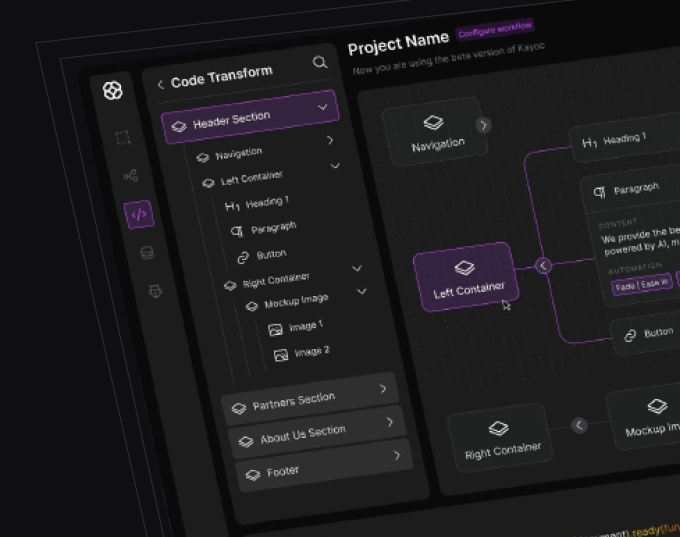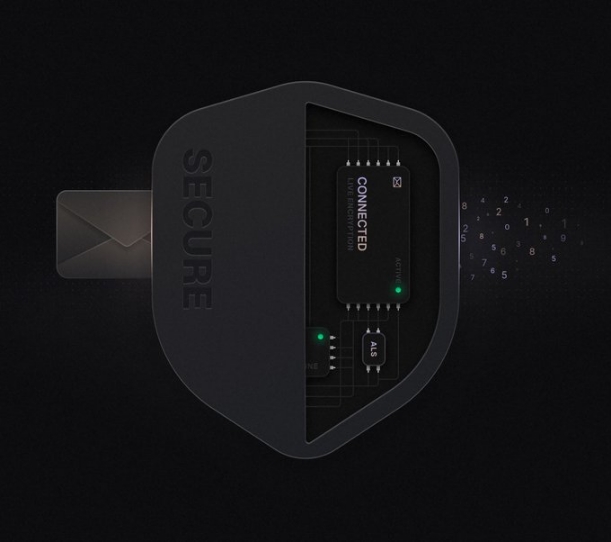Property
Management Software Development Company

Management Software Development Company
Heimler’s Journey From Blind Spots to Business Clarity – A3logics Unleashes the Power of Live Intelligence
Discover More
Redefining the Future of Lending – Cred Fintech’s Monumental Transformation with A3logics
Discover More
Revolutionizing Credit Risk – How A3logics and Heimler Redefined Trust and Precision with Machine Learning
Discover More
Transforming Risk to Opportunity – A3logics and Heimler Revolutionize Credit Risk Modelling
Discover More





















At A3 Logics, we specialize in providing top-notch, custom property management software development services to both residential and commercial real estate sectors. We help property firms to leverage software development, simplifying their property management processes. Our property software developers build highly effective property management solutions that help boost workflow efficiency and facilitate increased business growth.
With a proven history of delivering successful property software management projects, we stand out as a leader in crafting innovative solutions. We aim to help clients manage their properties effectively while ensuring optimal software functionality and compliance with industry standards.

Our team of expert software consultants offers strategic advice to maximize your software investment. We will analyze your project requirements, providing insights that unlock the full potential of your property management software solutions.
Our UI and UX design masters will create intuitive and visually appealing designs for your software. We craft contemporary designs that prioritize user experience and usability in your workflow.
Whatever your business requirements, we can craft custom property management software to fulfill them. Our software developers will integrate innovative features to grow your business and ensure seamless operation.
Boost your property management software by integrating it with advanced technologies and third-party APIs. Our services enhance functionality, creating a cohesive, intuitive system streamlining your operations.
With our migration service, effortlessly upgrade your obsolete property management software. We ensure a smooth transition to modern software, maximizing efficiency and customer satisfaction with minimal disruption.
Our support and maintenance services ensure your property management software works at its best. We offer proactive monitoring, prompt updates and rapid troubleshooting to optimize efficiency and reduce downtime.
We build next-generation real estate valuation engines with accurate property assessments and insights. We integrate advanced tools that leverage data analytics to streamline the valuation process, ensuring informed decision-making while maximizing investment potential to users.
We develop smart property management software solutions tailored to your operational needs. Our solutions integrate property tracking, tenant management, and reporting features, enabling efficient workflow management.
Our HOA management solutions simplify community administration by automating tasks such as fee collection, communication, and compliance tracking. Our software will improve member engagement and ensure smooth operations for homeowners’ associations.
Our software development team offers a personalized approach to property management software development. We focus on creating a product that aligns perfectly with your specific requirements and operational goals.

We empower businesses in property dealings with custom software development to optimize property management. By moving away from outdated spreadsheets, our tailored solutions incorporate essential features for effective property management.
Our property management software solutions streamline operational efficiency. By automating repetitive tasks, they fasten processes, minimize mistakes, and increase productivity, enabling you to invest your resources in high-value tasks.
Gain a competitive advantage with our robust property management software. By providing deep market insights, our software enables businesses to make informed decisions that refine strategies for optimal performance and higher profitability.
Easily navigate the changing landscape of property management with our software solutions. Our property management software equips you to compete effectively against tech-savvy rivals and keep your business responsive to changing conditions in the market.
Our customized property management solutions provide the insights you need for effective strategic planning. It enables you to reach the right audience and seamlessly guide potential clients toward their ideal properties.
The software we develop automates your reporting processes and saves time used in repetitive tasks while minimizing errors. The software creates reports in real-time on property performance, occupancy rates, and financial metrics.
We offer property management solutions that are built to grow with your business. Whether you’re expanding your portfolio or adapting to market changes, our scalable software ensures you can easily modify and enhance features to meet evolving needs.
Our property management software development company harnesses the latest technology to build innovative and efficient solutions tailored for your business growth. We focus on creating user-friendly systems that enhance operations and provide a competitive edge in the property management industry.

We have been one of the best property management software development companies in the business and below we have specified some of the reasons for the same
Our experienced developers specialize in creating property management software customized to address your unique operational needs and challenges.
We adhere to the highest industry standards in software development, delivering reliable, high-quality products that are scalable and adaptable to future requirements.
Leveraging the latest technologies and tools, we develop innovative software solutions designed to enhance efficiency and provide an exceptional user experience.
Our team prioritizes close collaboration with clients, refining requirements and delivering solutions that consistently exceed expectations.
We provide ongoing support to ensure your software remains up-to-date and fully operational, adapting to the evolving needs of your business.
Share your vision and requirements with our team to kickstart your property management software project. We’ll tailor our approach to align with your goals for optimal execution.
In this phase, we define key technologies, features, timeline, and budget for your property management software, aligning with stakeholders to ensure a smooth, low-risk development process.
In the UX/UI design phase, we focus on intuitive user journeys and visually appealing interfaces to drive swift adoption and ensure high usability.
In this stage, our developers bring your property management concept to life, building a fully functional product with open communication to ensure your vision is executed seamlessly.
Our QA specialists rigorously test your property management software to ensure it is functional, reliable, and user-friendly, addressing any issues before launch.
Your property management software is ready for seamless integration. We ensure smooth implementation, boosting efficiency and optimizing management from day one.
A3logics redesigned the logistics software of a mobile app solutions company’s end customer. The project included creating a comprehensive solution with reporting features, order tracking, and system updating.

“Their distinct flexibility and their strong communication were the project’s main assets.”


A construction technology company hired A3logics for custom software development. They created a construction digital platform that allows users to see project areas, distribute resources, and share data.
“Their software has proven essential in the construction sector.”

A3logics created and implemented a custom logistics software solution for a wealth management platform. This included developing features and integrating real-time tracking and data analytics functionalities.

“They ensured our collaboration went well by providing timely items and responding quickly to our requests.”


A3logics created and executed a personalized Generative AI system that featured chatbots for customer service, prediction algorithms, and AI-powered data analysis tools.

“Their technical expertise and reactivity were excellent.”


A3logics has developed an administrative management system for a health testing company. The product is designed to handle operations such as consultant matching, time reporting, and compensation management.

“The collaborative team we’ve worked with has shown great flexibility and excellent project integration.”


A transportation company hired A3logics to create a custom software program for freight activity tracking. The team also created invoicing tools and a driver-tracking system connected to a dispatch system.

“Their thorough inquiry and engagement with our team reflect their commitment to understanding our requirements.”


The time to develop custom property management software can hugely differ based on specific needs. More complicated solutions with advanced features will take longer than simpler solutions. The best way to get an accurate estimation is by talking to our experts before the development process starts.


Marketing Head & Engagement Manager